GNU Radio Testbed (TIGR)
We have designed the TIGR, a modular SDR based reconfigurable framework which allows for an adaptive OFDM transmission with a large set of adaptable parameters for different radio scenarios. In TIGR, transmitter and receiver node are composed of a host commodity computer and general purpose RF hardware, Universal Software Radio Peripheral (USRP). Baseband signal processing at host computers is implemented in GNU Radio framework, an open source software toolkit that provides library of signal processing blocks for developing communications systems and conducting experiments. The USRP performs computationally intensive operations as filtering, up- and down-conversion, controlled through a robust application programming interface (API) provided by GNU Radio.
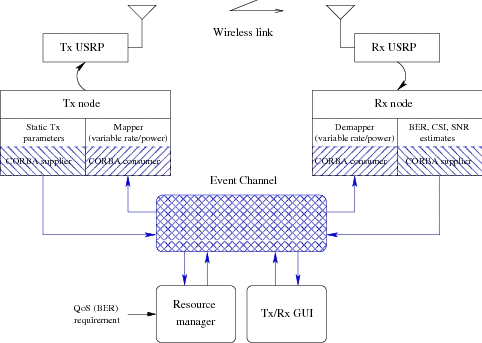
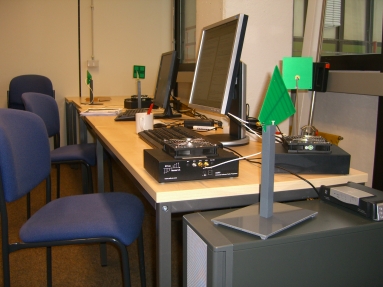
The control and feedback mechanisms provided by TIGR are based on CORBA allowing for optimal assignment of predefined transmission parameters at the input and estimation of link quality at the output. High flexibility, provided by large set of reconfigurable parameters, which are normally static in real systems, enables implementation and assessment of different resource allocation strategies for various classes of system requirements.
The implemented interactive GUI dynamically shows estimated channel parameters (average SNR, CSI, BER) and contains interactive interface for controlling allocation strategies in resource manager for different scenarios.Implemented scenarios
- Adaptive bit and power loading over subcarriers - Second prize award at WiNTECH 2009
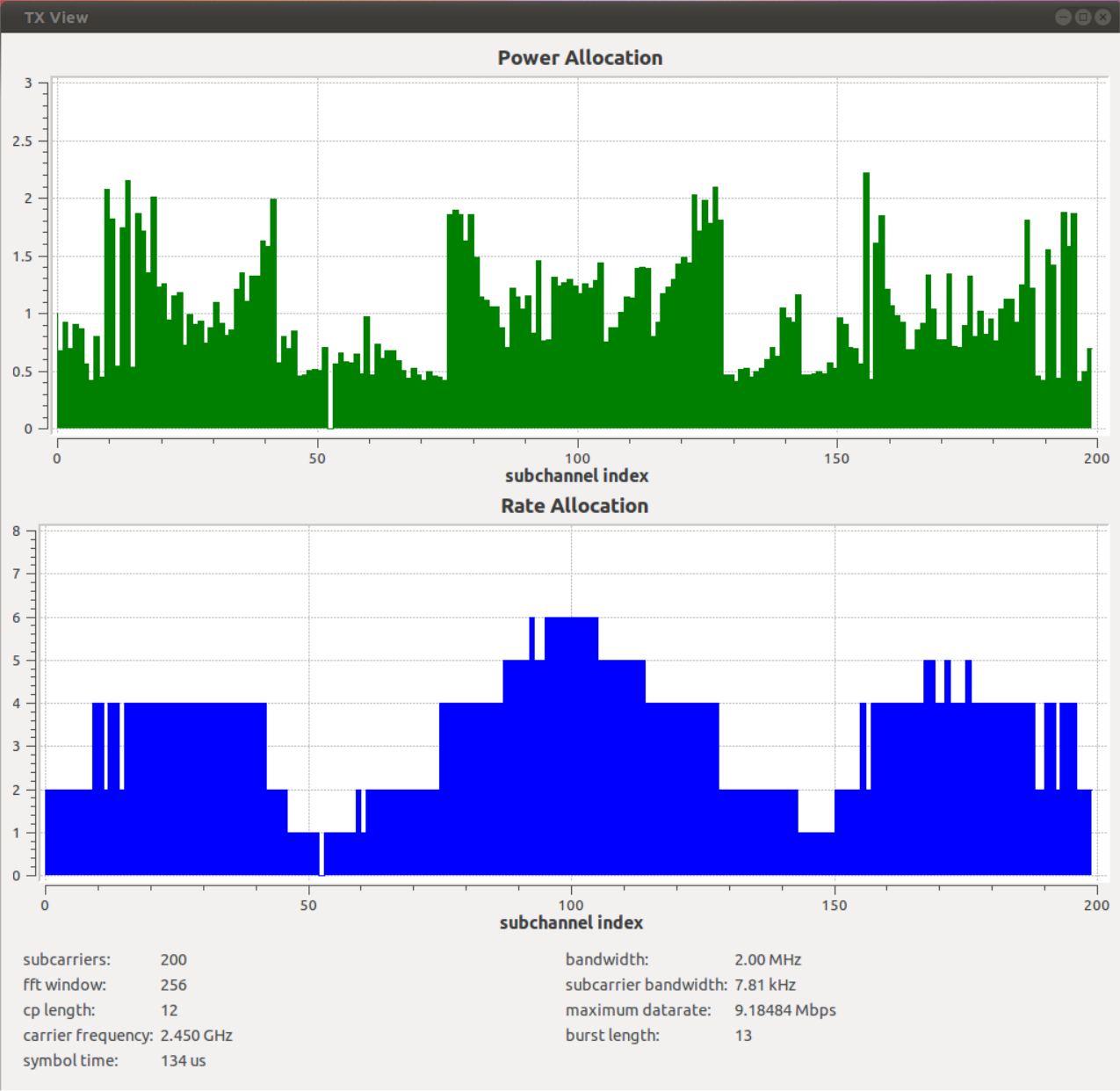
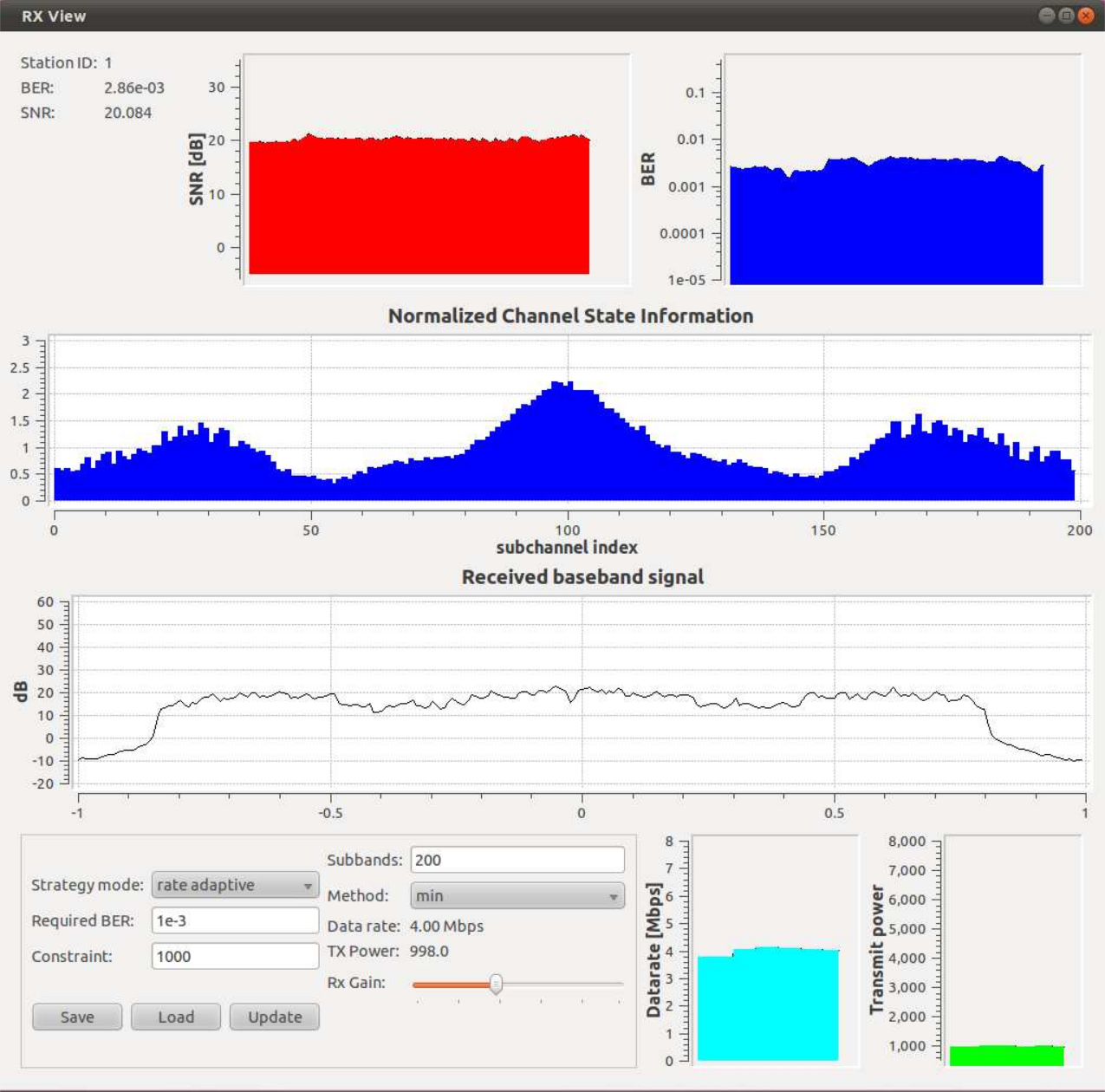
- Interference-free coexistence of two OFDM-based systems within a common frequency band - DySPAN 2010
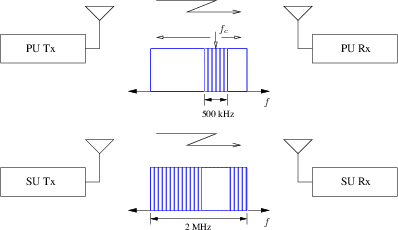
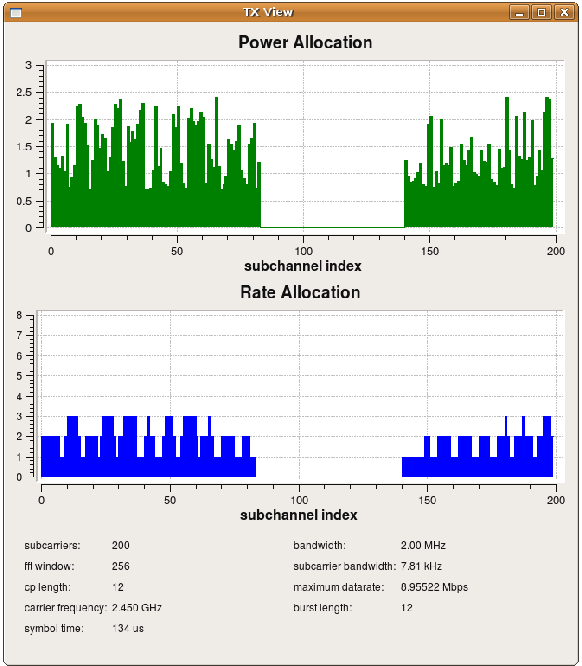
- Acquisition and Identification of OFDM Signals using Cyclostationary Signatures - Best Technical Presentation Award at WiNTECH 2011
Related research topics and publications
- M. Zivkovic, R. Mathar, Design Issues and Performance Evaluation of a SDR-based Reconfigurable Framework for Adaptive OFDM Transmission, Proceedings: ACM WiNTECH 2011, Las Vegas, USA, September 2011.
- M. Zivkovic, D. Auras, R. Mathar, OFDM-based Dynamic Spectrum Access, Proceedings: IEEE DySPAN 2010, Singapore, April 2010.
- M. Zivkovic, D. Auras, R. Mathar, Reconfigurable Framework for Adaptive OFDM Transmission, extended abstract for demonstration, Proceedings: WINTECH '09, Beijing, China, September 2009.
Lab exercises
The experiment "Implementing an OFDM Transceiver by Software Defined Radio" is developed in TIGR framework as a part of Master Course "Communications Engineering Laboratory" offered at RWTH. The goal of this exercise is to evaluate the system performance of a given SDR framework both in simulation and in RF transmission conditions.
Current projects
- MIMO transceiver implementation
- Spectrum occupancy characterization in Cognitive Radio systems
Related student work
- Diploma thesis SDR Implementation of Resource Allocation in COFDM Systems
- Student research project GNU Radio Implementierungen zur Synchronisierung von OFDM-Systemen
Contact
For further information contact Johannes Schmitz.
***
Aktuelle Informationen gemäß Art. 13 DS-GVO:
Datenschutzhinweis ***
Impressum ***

